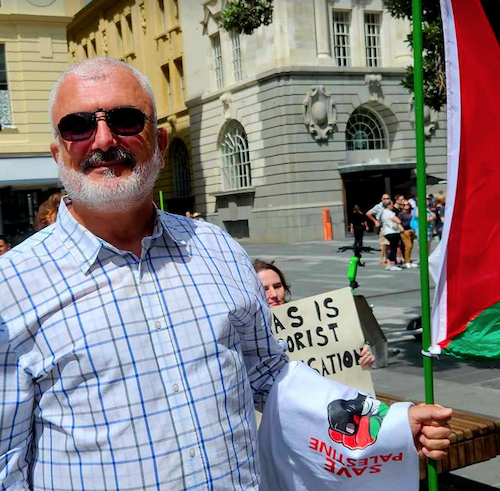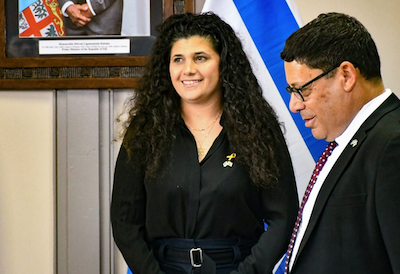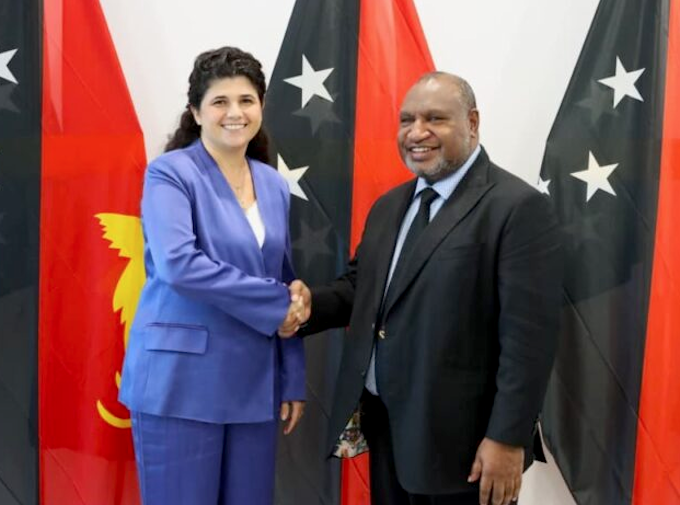The International Court of Justice (ICJ) in The Hague has ordered that Israel must allow aid into Gaza. Additionally, the court has found that Israel breached its obligations by putting restrictions on aid over the last two years.
Since the ceasefire came into force on October 10, Israel has repeatedly broken it, both in bombing Gaza and in not letting the required amount of aid over the border.
On October 15, the United Nations (UN) confirmed Israel was only letting half of the required aid trucks into Gaza
By October 18, there were already 47 recorded violations of the ceasefire. These resulted in Israel murdering 38 Palestinians and injuring 143 more.
ICJ eviscerates Israel
But now, the ICJ has published a damning advisory opinion which, above all else, states that Israel has failed to uphold its humanitarian obligations as an occupying power under the Geneva Convention. In doing so, Israel failed to ensure that it had met the “basic needs” of the Palestinian population.
Importantly, Israel has banned the United Nations Relief and Works Agency (UNRWA) since January – claiming that it lacks neutrality and Hamas, along with other armed groups, had infiltrated the organisation.
Of course, these claims are unsubstantiated, and instead, the court found that the organisation are the backbone of all humanitarian assistance in the area. This means there is an:
Obligation of Israel not to impede operations of United Nations entities, other international organizations and third States, and to co-operate in good faith with United Nations to ensure respect for right of Palestinian people to self-determination.
The ICJ has previously made two other rulings related to Israel’s war crimes in Gaza. In July 2024, the court ruled that Israel’s occupation of Palestinian territories was illegal. It had previously issued a ruling demanding that Israel take immediate measures to prevent acts of genocide in Gaza.
‘An obligation to protect medical personnel’
The advisory opinion states that Israel is obligated to supply the Occupied Palestinian Territory with “essential supplies and health services”. It also states that Israel is under:
negative obligation not to impede provision of such supplies and services.
Article 55 of the Geneva Convention requires the occupying power to provide the population with food and medical supplies. In particular, it should:
bring in the necessary foodstuffs, medical stores and other articles if the resources of the occupied territory are inadequate.
This means that Israel must not block the delivery of supplies or health services, which, everyone who has been paying attention knows, it has been doing for well over two years.
Additionally, the advisory opinion says Israel has an:
Obligation to respect and protect relief and medical personnel and facilities — Principle that humanitarian relief personnel must be respected and protected forming part of customary international law — Personnel participating in relief actions also protected by principle of distinction, unless and for such time as they directly participate in hostilities.
Article 56 of the Geneva Convention reiterated this. It states:
The Occupying Power has the duty of ensuring and maintaining, with the cooperation of national and local authorities, the medical and hospital establishments and services, public health and hygiene in the occupied territory, with particular reference to the adoption and application of the prophylactic and preventive measures necessary to combat the spread of contagious diseases and epidemics. Medical personnel of all categories shall be allowed to carry out their duties.
This means that bombing hospitals? Illegal. Murdering medics? Illegal. Injuring Red Cross workers? Also very illegal.
Of course, we know this. The majority of the international community knows this. These are the same legal arguments that lawyers have been using since Israel started its Genocide. Except now, it’s come from the most prestigious court in the world.
‘Starvation as a method of warfare’
It is well documented that Israel has used starvation as a method of warfare.
Obviously, Article 54 of the Geneva Convention prohibits this. Even more obviously, this has never stopped Israel from starving Palestinians.
The advisory found that Israel blocked the entry of aid into the Gaza Strip from March 2 to May 18, 2025. The court also viewed that the actions of the Gaza Humanitarian Foundation since May 2025 were not sufficient to alleviate the situation. It reinforced:
The Court further refers to its finding that the local population in the Gaza Strip has been inadequately supplied. In these circumstances, the Court recalls Israel’s obligation not to use starvation of the civilian population as a method of warfare.
The advisory then noted how a global initiative aimed at enhancing food security and nutrition analysis, which includes organisations such as UNICEF, the World Bank and the WHO, found that as of May 2025:
the entire population of the Gaza Strip faced high levels of acute food insecurity, with half a million people facing starvation.
It then later reported that the conditions in the Gaza Strip had “drastically deteriorated since then” and as of the end of August 2025, the humanitarian situation in the Gaza Strip had:
become catastrophic, with evidence of famine, mass displacement, extreme levels of deprivation and
a continued increase in civilian casualties, including children.
A damning vindication
The contents of this advisory opinion are not news to anyone. However, it means that Israel no longer has a legal leg to stand on. And the point here is that Israel has never had a legal leg to stand on. However, mainstream media can no longer pretend that they do not know, or that the rulings are open to interpretation. They will, of course. But, this is a significant step from the ICJ in its condemnation of Israel.
And, the ruling is a damning vindication of every single expert who has been arguing these same legal points for years. From debating whether Israel is an occupying power and therefore Palestinians have a right to armed resistance, to Israel’s legal and moral obligations to the people of Gaza – it’s all here in black and white.
There is no doubt that the United Nations should suspend Israel. And ultimately, Israel has no recourse whatsoever anymore to pretend that it is remotely acting in defence of its borders or interests. Morally, it never did, but with this ruling, there couldn’t be more of a legal precedent set to characterise their actions.
Featured image via the Canary
By HG
This post was originally published on Canary.




 (@infolibnews)
(@infolibnews) 

 (@doctoriaindarcy)
(@doctoriaindarcy)